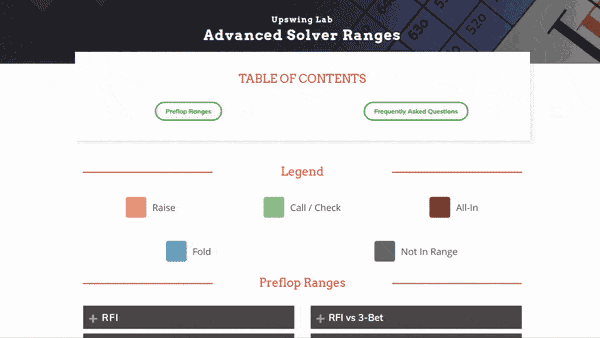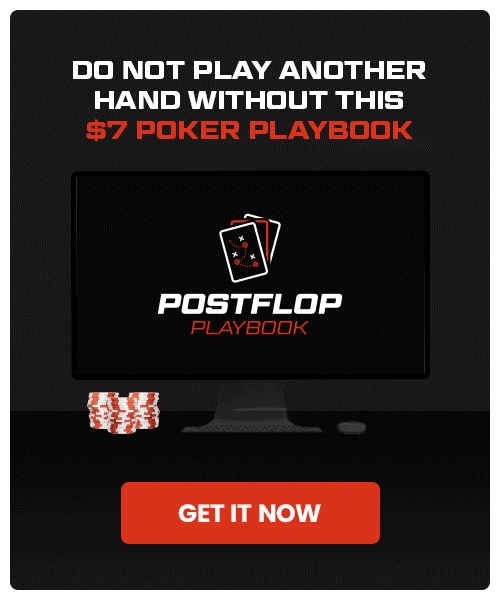How to Play Ace-King (Big Slick) in Cash Games
Is Ace-King one of ‘‘those hands’’ for you? You know, the ones that make you say “it looks good, but it never wins.”
Regardless of your personal feelings towards “Big Slick”, there’s no doubt that it’s one of the strongest hands in the game.
Learning how to play properly preflop and after the flop will be very valuable for you in the long run.
In this article, we will be covering:
- Playing Ace-King in Common Preflop Situations
- 3 Tips for Playing Ace-King When You Hit the Flop
- How to Play Big Slick When You Miss the Flop (ft. Doug Polk)
Let’s dive in!
How to Play Ace-King in Common Preflop Situations
Unopened Pots
Ace-King is in the top 2-3% percent of all starting hands in No Limit Hold’em. Even without knowing that, you can intuitively tell it must be very strong given that you hold the 2 highest cards in the deck.
You should always raise with this hand preflop when the action folds to you, regardless of your position. Limping should be avoided at all costs, no matter how tempting it might be to “set the trap” with it. Put simply, you will win less money over time with that cagey but misguided play.
Against a Raise
Ace-King plays great as a 3-bet for value against any position.
When faced with a raise, you will want to 3-bet with this hand every single time without any exceptions. It’s just THAT strong against any reasonable 3-bet calling range. Going with the passive line of cold-calling would mean winning smaller pots, on average, in the long run.
The table positions for your reference.
Against a 3-Bet
When faced with a 3-bet, you should almost always 4-bet for value with Ace-King. There are a few exceptions, however.
When you raise from the hiack or earlier and face a 3-bet from either of the blinds, consider just calling with Ace-King.
There are two main reasons to just call with Ace-King when you’re in these early and middling positions versus the blinds:
- You are likely facing a much bigger 3-bet size* (because they 3-bet out of position).
- 3-bet ranges from the blinds are typically stronger.
*The proper 3-bet size for the blinds is 4-5 times your raise. If your opponent uses a smaller size than that, consider 4-betting with Ace-King for thin-value and protection.
Further reading: What Top Poker Pros Already Know About 4-Betting.
Against a 4-Bet
When facing a 4-bet, you should always continue with Ace-King (barring an insanely specific read that your opponent is a monster nit). The question you will need to answer is:
Should I call or should I shove?
If you think your opponent has a balanced (aggressive) 4-betting range, you should always shove it in. If you think your opponent has a tight 4-betting range, it’s best to just call, hoping to hit an Ace or a King on the flop. 5-bet shoving will do you no good if your opponent only has JJ+ and AK himself.
Note: Want to know how to play every hand in every common preflop situation? Get instant access to extensive preflop charts and lessons (for cash games, heads-up and tournaments) when you join the Upswing Lab training course. Lock your seat now!

The Advanced Solver Ranges for cash games — one of five sets of preflop charts in the Upswing Lab.
3 Tips for Playing When You Hit the Flop with AK
These tips focus on when you flop top pair with 100 big blind stacks, specifically.
Tip #1: Always c-bet for value when you flop top pair
A nice flop to c-bet for value with Ace-King.
This includes both single-raised pots and 3-bet pots. Regardless of whether your top pair is on a King-high flop or an Ace-high flop, your hand is very strong, and extracting value should be your immediate priority.
Warning: Do not slow play!
Note: Want to get better at poker without spending a lot of time or money? Get the $7 crash course that will help you win more often. Grab your Postflop Playbook now!
Tip #2: In 3-bet pots, size down your c-bets
Because the pot is already bloated, it’s very easy to get all of the money in by the river in 3-bet pots. This is true even if you start off with a very small c-bet on the flop (such as 33% pot). Furthermore, Ace and King-high flops are extremely favorable for you as the preflop 3-bettor, further incentivizing a small size.
C-betting too large will make your opponent’s life very easy — he can simply continue with strong hands and fold all marginal hands. You’re better off challenging those marginal hands with a small size, which also gives you a better price when bluffing.
Tip #3: Proceed cautiously with top pair in multiway pots!
Your top pair is still pretty great on the flop in a multiway pot, but there is a significant equity drop-off compared to a heads-up pot. It gets even worse three or more players reach the turn after calling your flop bet.
This happens because the burden of defense is dispersed to more than just one player, which means your opponents are forced to play tighter versus your bet on the flop. Thus, when they do call, they have significantly stronger ranges than what they’d have after calling in a heads-up pot.
A small c-bet on the flop is oftentimes appropriate, especially on dry boards, but prepare to slow down if the board gets dicey on the turn. If even a flop c-bet feels a bit dicey, start with a check and go from there.
3 Tips for Playing When You Miss the Flop With AK
Tip #1: Bet when the flop is dry and disconnected and you are in position
Example: You raise with AKo and get called by the big blind. The flop is Q♦ 7♥ 4♠.
When in position as the preflop aggressor on a fairly disconnected flop, you will want to fire a continuation bet (c-bet) with Ace-King, even if you don’t have a draw.
With six outs to hit top pair with top kicker, your hand will have enough equity to make it a profitable semi-bluff. If you do hit top pair on the turn, you can comfortably triple barrel for value.
Tip #2: You can sometimes check-call when you miss the flop after 3-betting.
Example: The button raises, you 3-bet from the small blind with AKo and the button calls. The flop is 9♦ 7♥ 4♠.
As long as the flop isn’t super-connected, you can start with a check on the flop and call should you face a bet. There are a few reasons Ace-King is good enough to check-call on flops like 9-7-4 or J-8-2:
- You have a good amount of equity.
- You will get to realize your equity pretty cheaply (or for free if your opponent checks back).
- You have six outs to hit a quite strong hand (top pair).
Pro tip: You should also slow-play with some overpairs, such as Aces and Kings, in spots like this. Doing so protects the weaker hands in your range and makes you tougher to play against.
Tip #3: When the board is connected and you have nothing, it’s best to fold.
Example: You raise preflop with A♠ K♠ and get two callers. The flop is 8♦ 7♦ 6♦.
This is one of the things that beginner players get wrong — they get married to their hand because it was so strong preflop. You, on the other hand, are working on your game and won’t make that mistake.
Don’t feel like you need to win every pot just because you had a great hand on the previous street! Sometimes you just gotta give it up and move on to the next hand.
Wrapping Up
That’s all for this article guys! I hope you got a better idea about how to play Ace-King in your next sessions and win more money.
If you enjoy this type of article let me know which kinds of hands you are struggling with and we will add them to our list for future articles.
Want to avoid mistakes with the very best hand in poker? Read How to Play Pocket Aces (5 Mistakes to Avoid).
Till’ next time, good luck, grinders!
Note: Want to get better at poker without spending a lot of time or money? Get the $7 crash course that will help you win more often. Grab your Postflop Playbook now!
